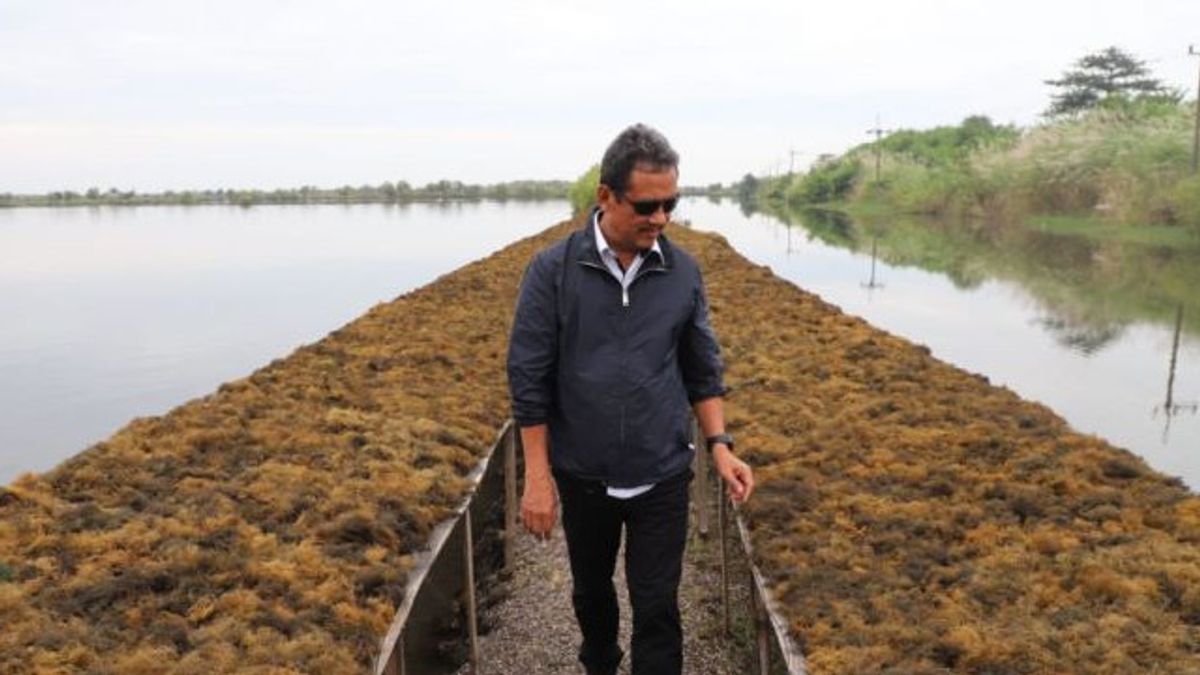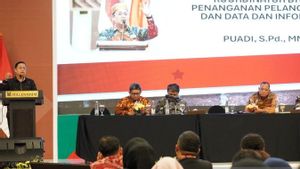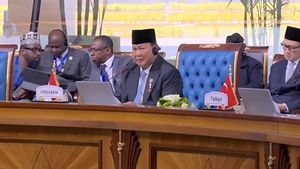JAKARTA - The Minister of Maritime Affairs and Fisheries, Sakti Wahyu Trenggono, will support the police and local government to investigate the pollution that occurred in the waters of Bima Bay, West Nusa Tenggara.
"An incident like this is clearly detrimental to marine health. We are coordinating with the local government and are ready to support the investigation to completion," said Minister Trenggono in the KKP's official broadcast, Thursday, April 28.
Based on data collected by the technical implementing unit (UPT) of the Ministry of Maritime Affairs and Fisheries (KKP) in Denpasar, Bali, pollution was monitored on Lawata Beach, Bima City, starting April 27, 2022.
The sea surface covering material is brown in shape like a gel, does not smell of oil, and does not mix well with sea water.
Around the pollution area, several fish were found drunk and even dead. Samples of surface water, subsurface water, and fish carcasses have been sent for laboratory testing by the Bima Regency Environmental Service.
"The KKP team continues to collect data. The KKP Office in Jembrana is also conducting imaging of conditions before and after the incident," said Minister Trenggono.
Regarding the pollution of water areas, previously KKP had also sealed the CV IP Fish Processing Unit in Muara Baru, North Jakarta, to temporarily stop activities at the processing unit.
Director General of Marine and Fishery Resources Supervision of the KKP Rear Admiral TNI Adin Nurwaluddin in a release in Jakarta, Monday (11/4), conveyed that based on the results of supervision, CV IP violated the provisions of the Minister of Marine Affairs and Fisheries Regulation Number 10 of 2021 regarding the obligation to have a Wastewater Treatment Plant. (IPAL) for processing businesses that already have a Processing Eligibility Letter (SKP).
"Our results show that the fish processing business does not have an WWTP and waste from fish processing activities is directly dumped into waterways, so it has the potential to pollute the environment," said Adin.
Adin explained that based on the scale of the business owned, the IPAL should be a consequence of the issuance of the Processing Feasibility Certificate (SKP).
In the absence of WWTP, he continued, the UPI is very vulnerable to causing pollution. "Should be based on the scale of its business, the UPI must have a good waste management system and technology, not disposed of like this," he said.
The English, Chinese, Japanese, Arabic, and French versions are automatically generated by the AI. So there may still be inaccuracies in translating, please always see Indonesian as our main language. (system supported by DigitalSiber.id)













